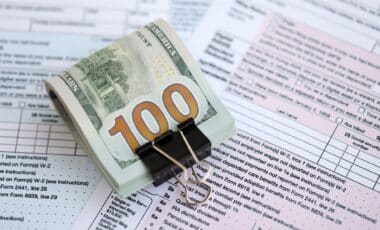According to Nationwide building society, UK house prices dropped for the first time in three months as high mortgages continue to impact the market.
UK House Prices Dip for First Time in Three Months
It is the first time in three months that house costs have fallen, after making gains of 0.7% in February and March.
The average cost of a property dropped by 0.2% from February to March to reach £261,142, after seasonal changes to the figures.
Nevertheless, March’s figure rose by 1.6% on a year-over-year basis, an increase in pace on February’s yearly change of 1.2%.
Robert Gardner, Nationwide’s chief economist, stated: “Activity has picked up from the weak levels prevailing towards the end of 2023 but remain relatively subdued by historic standards.
“For example, the number of mortgages approved for house purchases in January was about 15% below pre-pandemic levels. This largely reflects the impact of higher interest rates on affordability.”
Mortgage rates have decreased significantly compared with the middle of last year, when a standard five-year deal surged above 5.5%. Data from Nationwide highlighted that the average was now down under 4.5%.
The building company, which is currently the nation’s third biggest mortgage provider and is in the course of purchasing Virgin Money for £2.9 billion, stated that with the cost of living crisis easing and the falling inflation rates decreasing, consumer confidence was improving, with surveyors reporting a rise in buyer inquiries.
It also added that wage growth was surpassing house price growth, which would result in homes being more affordable for soon-to-be buyers.
Gardner remarked: “If these trends are maintained, activity is likely to gain momentum, though the pace of the recovery is still likely to be heavily influenced by the trajectory of interest rates.”
UK Housing Market Divided: Interest Rate Speculation Sparks Regional Trends
The Bank of England’s standard rate is standing still at 5.25%, but policymakers hinted last month at the possibility of three rate cuts later this year after noticing “encouraging signs” of decreasing inflationary rates.
The figures display differences in the yearly house price growth between the North and the South of England. Prices have risen by 1.7% year-on-year in northern England, including the north-east, north-west, Yorkshire and the Humber, east Midlands, and west Midlands.
In southern England, including the south-west, outer south-east, outer metropolitan, London, and East Anglia, prices fell by 0.3%. London remained the most expensive city in England, with an average house cost of £519,505. This marked a yearly increase of 1.6% but a monthly drop of 2.4%.
The south-west of England was the least performing region, with prices decreasing by 1.7% year-on-year.
Guy Gittins, Foxtons’s chief executive, stated that his company noted an important uplift in viewing offers and requests in recent months.
He highlighted: “Higher mortgage rates do remain a concern for many buyers and will continue to influence the price they are able to pay to a degree. However, with interest rates expected to fall this year, market confidence is high and we’re continuing to see buyers move forward with their plans to purchase undeterred.”









